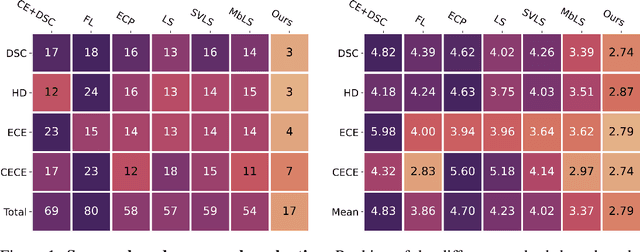Trust your neighbours: Penalty-based constraints for model calibration
Paper and Code
Mar 11, 2023



Ensuring reliable confidence scores from deep networks is of pivotal importance in critical decision-making systems, notably in the medical domain. While recent literature on calibrating deep segmentation networks has led to significant progress, their uncertainty is usually modeled by leveraging the information of individual pixels, which disregards the local structure of the object of interest. In particular, only the recent Spatially Varying Label Smoothing (SVLS) approach addresses this issue by softening the pixel label assignments with a discrete spatial Gaussian kernel. In this work, we first present a constrained optimization perspective of SVLS and demonstrate that it enforces an implicit constraint on soft class proportions of surrounding pixels. Furthermore, our analysis shows that SVLS lacks a mechanism to balance the contribution of the constraint with the primary objective, potentially hindering the optimization process. Based on these observations, we propose a principled and simple solution based on equality constraints on the logit values, which enables to control explicitly both the enforced constraint and the weight of the penalty, offering more flexibility. Comprehensive experiments on a variety of well-known segmentation benchmarks demonstrate the superior performance of the proposed approach.
 Add to Chrome
Add to Chrome Add to Firefox
Add to Firefox Add to Edge
Add to Edge